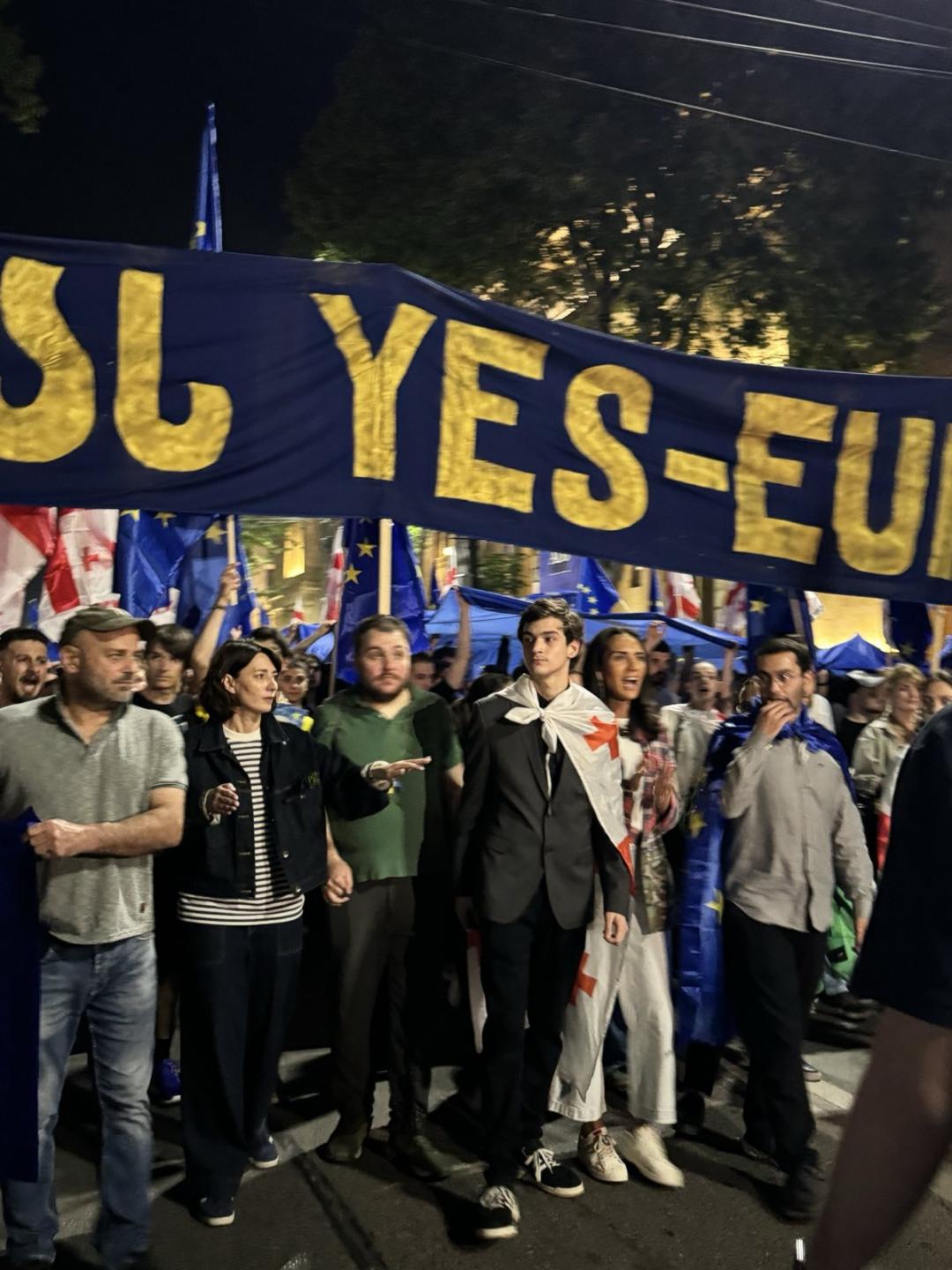
Attacks on Protesters in Georgia Intensify

Since the protests against the Foreign Agents Law began, there have been numerous attempts by unidentified individuals to intimidate demonstrators through life-threatening phone calls, physical assaults, and the posting of defamatory posters at the homes or offices of activists, NGO leaders, and politicians, labeling them as "agents" and "enemies of the state. These actions suggest a coordinated campaign to intimidate opponents of the Georgian Dream (GD) party.
At the same time, on May 8, Parliament Speaker Shalva Papuashvili announced that the GD was launching a database to track individuals accused of involvement in violence, blackmail, threats, or support for such actions.
Several prominent figures have been targeted for physical assault, including UNM party member Dimitri Chikovani, biker rally organizer Lasha Ghvinianidze, and Gia Japaridze, a professor and researcher with ties to the opposition party Girchi-More Freedom. These attacks were reportedly premeditated, with the assailants ambushing their targets.
In a related incident, activist Lado Apkhazava, a winner of the National Teacher Award, and his child were also attacked.In addition to physical violence, there has been an increase in harassing phone calls directed at activists, media, and civil society members involved in the protests. Initially, these calls were made from international numbers, but later reports indicated that they were made from local Georgian numbers. Evidence of harassment extended to activists' property, with damaged bicycles from the protest's bicycle march and defamatory posters appearing on the offices and homes of various opposition and civil society figures on May 9, branding them as "agents" and "enemies of the country.
The campaign of intimidation escalated with further attacks on May 9. Boris (Chele) Kurua of the Girchi-More Freedom Party was ambushed and beaten near his home, suffering serious injuries to his face and skull. Another opposition figure, Nodar Chachanidze, also reported an attack in similar circumstances, but managed to attract the attention of bystanders, which reduced the severity of his injuries.
On the same day, Ucha Abashidze, a well-known military blogger and critic of the Foreign Agents Law, was arrested for allegedly illegally possessing weapons and ammunition. His arrest followed a police raid on his home, which was conducted without access to his lawyer or family. The police operation drew immediate public attention, with protesters gathering at Abashidze's home and confronting police, and Abashidze's lawyer reported that he was detained under a specific article of the Georgian Criminal Code relating to illegal arms activities. The incident has heightened tensions, with the community actively protesting what they perceive to be unjust actions by the authorities.
In response, the Tbilisi Police Department of the Ministry of Internal Affairs announced that six people had been arrested during ongoing rallies against the Foreign Agents Law on charges of assaulting a police officer and damaging property. According to the police department, the demonstrators exceeded the norms established by the law on manifestation and assembly during the protests. It also alleged that the demonstrators attempted to break through police lines in front of the parliament and gain entry by erecting barricades and using unidentified tear gas, among other tactics.
See Also


Mirzoyan Meets US Deputy Assistant Secretary Joshua Huck

Azerbaijani President Holds Talks with UAE and German Business Delegations on Economic Cooperation

Grigoryan Confirms Armenia’s Readiness to Dissolve OSCE Minsk Group Upon Peace Treaty Signing

Azerbaijani Official Warns of Ecological Risks to Caspian Sea, Similar to Lake Urmia and Aral Sea

